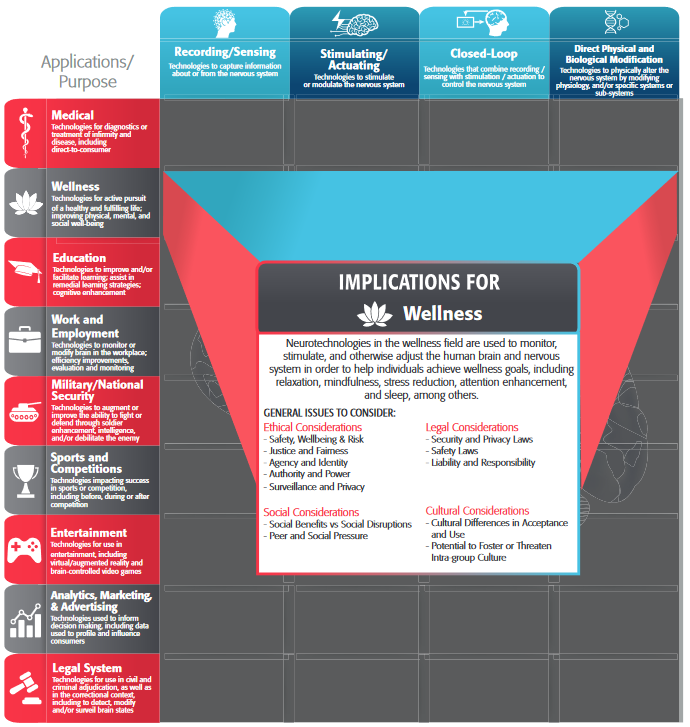Marketing Preamble Marketing as a means to advertise products can already be found on house walls in Pompeii. As a field, marketing is generally part of business economics, and in many universities, it is established as an independent degree program as well. In general, marketing can be defined as the division of business activity that has the function to present …
A new paradigm for probabilistic neuromorphic programming
Since it was first introduced neuromorphic hardware has held the promise of capturing some of the efficiency of biological neural computation, which is 3- 6 orders of magnitude more efficient than engineering solutions. To attempt to capture this efficiency, one key feature of biological neural computation that has been replicated in current neuromorphic hardware is its event-based nature. Neural ‘spikes’ are used to transmit information both in neuromorphic hardware and many neurobiological systems to minimize long distance communication energy costs.
A new paradigm for probabilistic neuromorphic programming
P. Michael Furlong1* and Chris Eliasmith1 1Centre for Theoretical Neuroscience, University of Waterloo, 200 University Ave., Waterloo, N2L 3G1, Ontario, Canada. *Corresponding author(s). E-mail(s): michael.furlong@uwaterloo.ca; Contributing authors: celiasmith@uwaterloo.ca; Keywords: probability, Bayesian modelling, vector symbolic architecture, fractional binding, spatial semantic pointers 1 Introduction Since it was first introduced neuromorphic hardware has held the promise of capturing some of …
An Interview with the 2022 SSCS-Brain Joint society best paper award winner
In 2022, Prof. Mahsa Shoaran together with Uisub Shin, Laxmeesha Somappa, Cong Ding, Yashwanth Vyza, Bingzhao Zhu, Alix Trouillet, Stéphanie P. Lacour from EPFL won the SSCS-Brain joint society best paper award. In an interview with the winners of the award, the IEEE Brain Magazine discussed more potential impact of their work.
Q&A with Dr. Brad Aimone, Distinguished Member of Technical Staff, Center for Computing Research, Sandia National Laboratories
In partnership with IEEE Electron Devices Society. In this episode, Dr. Aimone discusses his work as a leading researcher into neuromorphic computing, focused on bridging the gap between next-gen computing technology and neuroscience.
Legal Preamble
Legal System Preamble Since ancient times, various tools have been used across different cultures in order to mete out justice—starting with infusions, poisons, and mystical foods, such as the interrogations using “truth drugs” and the trance state in oracles from Delphi to Tibet and Shamanic cultures. Efforts to understand criminal behavior, assess states of mind, and apply interventions to modify …
Entertainment Preamble
Entertainment Preamble The field of entertainment has consistently made use of advances in technology to hold the attention and interest of an audience, to convey emotion and information, and typically to provide amusement. From the innovations of props, sets, dance, sound, music, and video that are conveyed in person, pre-recorded, or transmitted great distances, efforts to incorporate neurotechnology into entertainment …
Sports & Competitions Preamble
Sports & Competitions Preamble Sport—testing one’s abilities, talent, dedication, and performance in fair competition—differs in meaning and execution for everyone. The competition may be head-to-head against others, against a benchmark, or against one’s own self; it could happen in a driveway, in a basement, or in an Olympic stadium. Sometimes the competition is a test of physiology, sometimes a test …
Military and National Security Preamble
Military and National Security Preamble Attempts by the military to modulate the brain to optimize mental and physical performance are not novel. Increasingly, as multi-domain operations become more complex, requirements placed on decision-making, situational awareness, ability, and mental and physical performance only continues to expand. Military service members also face unique situational challenges, often including hazardous situations that can be …
Work & Employment Preamble
Work and Employment Preamble Much of life in modern society is organized by relations of work. Neurotechnology has the potential to change how we think about the meaning of work as well as the definition of the workplace. Some neurotechnologies may extend the work-day, blurring the distinction between work and leisure time. The same could be true for the ‘place’ …


